Translations 677
A Decade Against Homophobia
A Decade Against Homophobia, or, It Seems Like Yesterday
by Francisco Rodriguez Cruz, from his blog
A CubaNews translation by Walter Lippmann.
Time passes and people are getting old. Not me, of course. From next week we will be back in the center of the maelstrom of another Cuban Day against Homophobia, the tenth. Amazing.
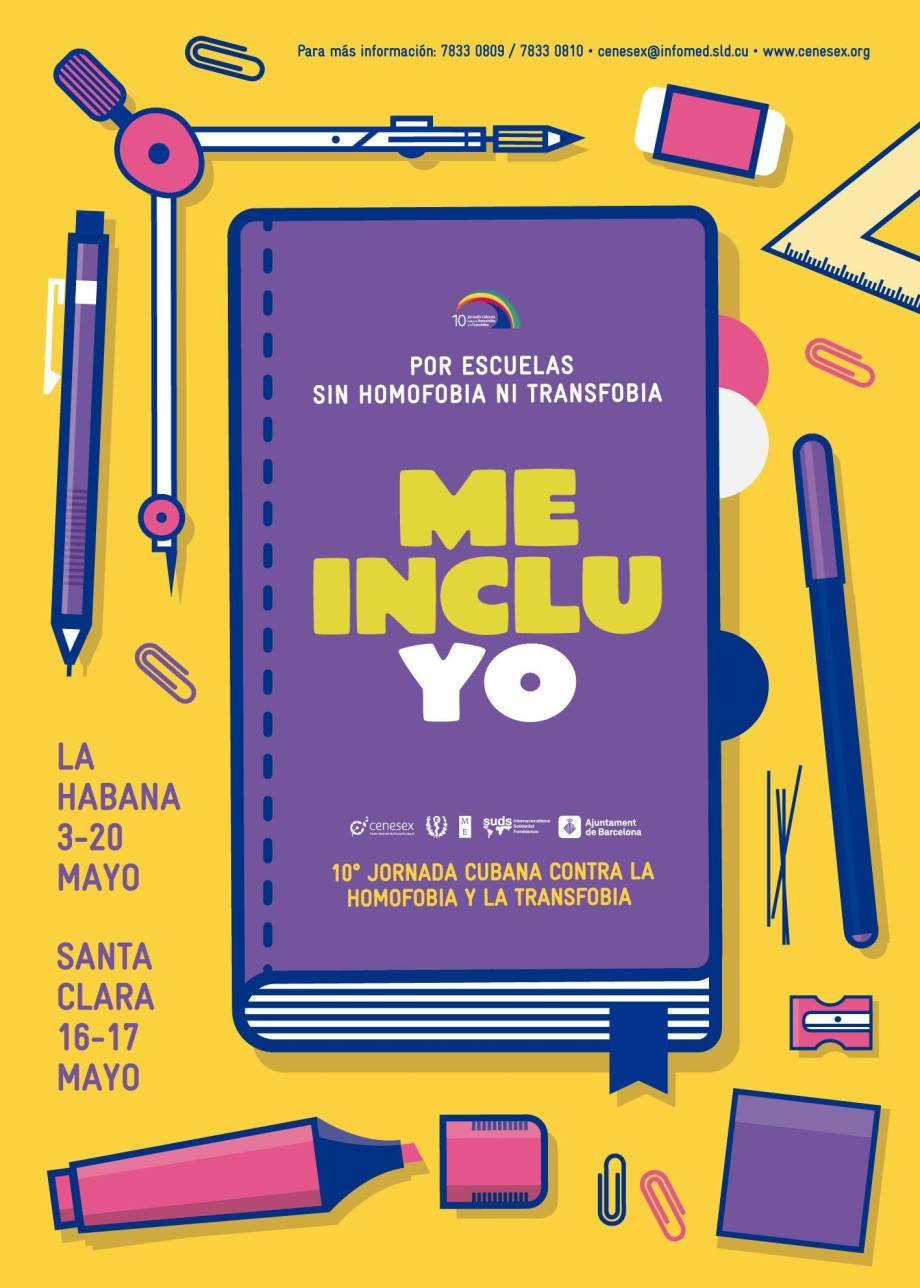
It seems like it was yesterday when I was filled with astonishment and excitement at the Pabellón Cuba in 2008, and I listened for the first time to other gay, lesbian, bisexual, transsexual, transvestite people, speaking in public – and loudly – about what was always hidden before In Cuba: our lives and problems.
I did not dream at the time to have this blog – I was short a little more than a year and a half to its birth – nor could I assume that I would have the opportunity to approach first and be a part of the organizing committee of these celebrations from 2010.
With that experience, so intense that makes it difficult to discriminate between the greater relevance of one fact or another, I propose what will undoubtedly be an incomplete selection of moments or key contributions by each of the previous Cuban Conferences against Homophobia and Transphobia .
I must admit that, at the beginning, I thought of doing so only from my (bad) memory, as well as from a review of the texts I wrote in this blog and the photographs I had kept; But then I realized that was not enough.
Memories are often imprecise. I ran the risk of mixing some events and details from year to year. So I took the trouble to check each event with the reports of the Cuban and foreign press that I kept throughout these ten years.
I should also like to thank Dr. Mariela Castro, director of the National Center for Sex Education, who agreed to review a first version of this chronological summary and made several pertinent suggestions to enrich it.
Although I tried to emphasize the elements of newness or rupture in each annual edition, it is very probable that even in this selection there are issues or nuances that someone might also consider important or central. I invite you to propose and add.
I am sure that we could enrich even more this brief tour for this first decade of the day, based on the experiences that each one keeps.
My humble intention is for everyone to remember and treasure for themselves, their first, most intimate or revealing participation in this endeavor, result of the work, persistence, creativity and daring of so many good people.
We will see each other from 3 to 20 May at the Tenth Cuban Conference against Homophobia and Transphobia.
- 2007:
- On May 17, a group of people from the LGBTI community walk from the National Center for Sex Education along with its director, Mariela Castro, and specialists from that institution to the 23rd and 12th capital city, where the American film Boys Don’t Cry, (1999) was shown. It was the first celebration in Cuba of the International Day against Homophobia and Transphobia.
- 2008:
- With the presence of Ricardo Alarcón, then president of the Cuban Parliament, the first Cuban Conference against Homophobia and Transphobia was opened, and where it would still be its main headquarters in Havana: Cuba Pavilion.
- The first Gala Against Homophobia in the Astral theater theater brought together dozens of transformista [crossdresser] artists, an unprecedented event in an “official” stage of the Island.
- It began the monthly cineclub Diferente cultural project, in led by journalist and critic Frank Padrón.
- 2009:
- Speaking at the Pavilion Cuba, Mariela said that “this day is part of a broader educational strategy to call attention to respect for free and responsible sexual orientation and gender identity.” She also explains the Conga’s position against homophobia in relation to other initiatives: “We did not make a gay march because gays are not the problem; The problem is homophobia,” said the director of the Cenesex
- They hold panels with specialists that address sexual diversity in the Cuban family.
- The National Union of Writers and Artists of Cuba holds for the first time a day of activities at its headquarters, with the participation of important intellectuals, a space that continues until today.
- Diversity is natural: slogan that used the day in various media, such as t-shirts and posters. In the visual identity stood the posters with the phrase: Two equals also pair.
- 2010:
- Panel of activists from Cuba and other countries brings together in the La Rampa cinema a large audience of LGBTI people and their families who talked about the rights of that community.
- Cenesex experts provided training to officers of the Havana National Revolutionary Police (PNR) on how biases in police action affect gays, lesbians, transvestites and transsexuals.
- For the first time the Day leaves the capital, to carry out its central activities in the city of Santa Clara, with a transformista spectacle that closed Marta Abreu Street in front of the cultural center El Mejunje.
- 2011:
- The Karl Marx theater hosts for the first time the Gala against Homophobia, with a transformismo spectacle whose brilliance and originality surprised the public and had a wide repercussion in the international press.
- In the Student House of the University of Havana Mariela Castro exchanged with students and activists about respect for free and responsible sexual orientation and gender identity.
- In Santiago de Cuba, more than 450 students and professors at the Universidad de Oriente filled the campus theater to participate in a panel discussion with Mariela Castro along with other specialists and activists, who then had a lively debate.
- Extensive discussion between the population and LGBTI activists in Plaza Dolores and Plaza de Marte, in Santiago de Cuba.
- To the rhythm of the conga of Los Hoyos, hundreds of people rolled against the homofobia from the Plaza Dolores to the Place of Mars.
- Dr. Jorge Pérez presented in Santiago de Cuba his book Sida: confessions to a doctor, where he discusses the history of the HIV epidemic in the country and how stigma and discrimination contribute to homosexual persons.
- For the first time, one of the most visible slogans of this Conference was used: Humanity is diversity, which was accompanied by the expression: For sexual rights as human rights. The phrase: Homosexuality is not a danger, homophobia is also very important.
- 2012:
- Mariela announced at a press conference that for the first time in all provinces there would be activities on the occasion of the International Day against Homophobia and Transphobia.
- Students from the Latin American School of Medicine spoke with Mariela Castro in an intense multicultural debate in relation to free sexual orientation and gender identity.
- Panel of activists and conga by the Prado of Cienfuegos gathered hundreds of activists and general public.
- Cienfuegos’s former star pitcher, Yosvany Pérez Ruiz, intervened in a panel that took place at the University of Medical Sciences of that province, publicly acknowledged the existence of homosexual players within the national pastime and referred to the difficulties they face as a consequence Of the homophobia that prevails in this sport.
- Granma newspaper published the article Homophobia is what we must cure, in what would be the first non-informative gender work in the official organ of the Party on the occasion of the Day.
- 2013:
- With the motto Hogar is love, respect and inclusion, began the practice of dedicating the day in a biannual way to a specific theme, in this case the family.
- René González Sehwerert, one of the Five Cuban Heroes who suffered imprisonment in the United States for fighting terrorism, participated in activities of the Day and took part in the Gala. Since 2011, the Cuban LGBTI community has included in the Conga expressions of solidarity and demand of freedom for the Five.
- First Cuban Vice President, Miguel Díaz-Canel Bermúdez, attended the Cuban Gala against Homophobia, in the largest sample of public political support for the Day by the State and the government.
- National and foreign media emphasized with amplitude slogans of the Conga: Socialism yes, homophobia no! And Unity in Diversity!
- First Sports Festival against Homophobia and Transphobia. It was inaugurated by Mariela and the then Inder president, Christian Jiménez Molina.
- Also participating in all activities were Lohana Berkins, a recognized trans activist from Argentina; And Adela (José Agustín) Hernández González, first trans delegate of Cuba by municipality of Caibarién.
- Activists with rainbow flags witnessed baseball game between Industriales and Ciego de Avila for the pass to the championship final, fact that transmitted the TV.
- One of the educational channels of Cuban television broadcast for the first time the gala against homophobia in the Karl Marx theater.
- 2014:
- VI Regional Conference of the International Lesbian, Gay, Bisexual and Trans Association for Latin America and the Caribbean (Ilgalac) in Varadero and Havana, the first major international event of LGBTI leaders that took place in the country.
- In Manzanillo participated in the festivities the popular artist Candido Fabré, who composed an exclusive dance music theme for the Journey.
- For the first time the Round Table of Cuban TV, one of its main informational spaces, dedicated a program to the Day, under the title La familia diversa.
- 2015:
- The celebrations of love began during the activities in the Cuba Pavilion, during which homosexual couples received the blessing of religious leaders from the United States, Canada and Cuba.
- The CENESEX prize – In Memoriam – was presented for the first time to Vilma Espín Guillois
- The Workers ‘Central of Cuba received for the first time in its headquarters, the Workers’ Palace, activists of the LGBTI community of Cuba and other countries, who shared and discussed together with specialists in labor law and leaders of the Cuban unions and Latin America and the Caribbean. Ulises Guilarte de Nacimiento, Secretary General of the CTC, presided.
- Trade unions participated for the first time in the now traditional conga against homophobia and transphobia in Havana, in response to the convening of the secretary general of the CTC, to address discrimination in labor spaces.
- Guateque campesino against homophobia in Las Tunas, where for the first time harmoniously coincided the celebrations of the Day and the Day of the Peasant.
- Creation of the slogan I include myself, as the center of the communication campaign on the Journey.
- Among the slogans that people chanted during the Conga, the media highlighted this time: all rights for all people!
- 2016:
- The conga against homophobia in Havana extended for the first time its traditional route by the Malecón, from the Piragua, until climbing by 23 to the Cuba Pavilion.
- Marta Sánchez, a well-known Spanish interpreter, attended as a guest artist at the Gala.
- He participated in the activities of Matanzas Louis-Georges Tin, a French activist born in Martinique and creator of the International Day against Homophobia and Transphobia.
Here I leave the most recent, almost final version of the program for this year:
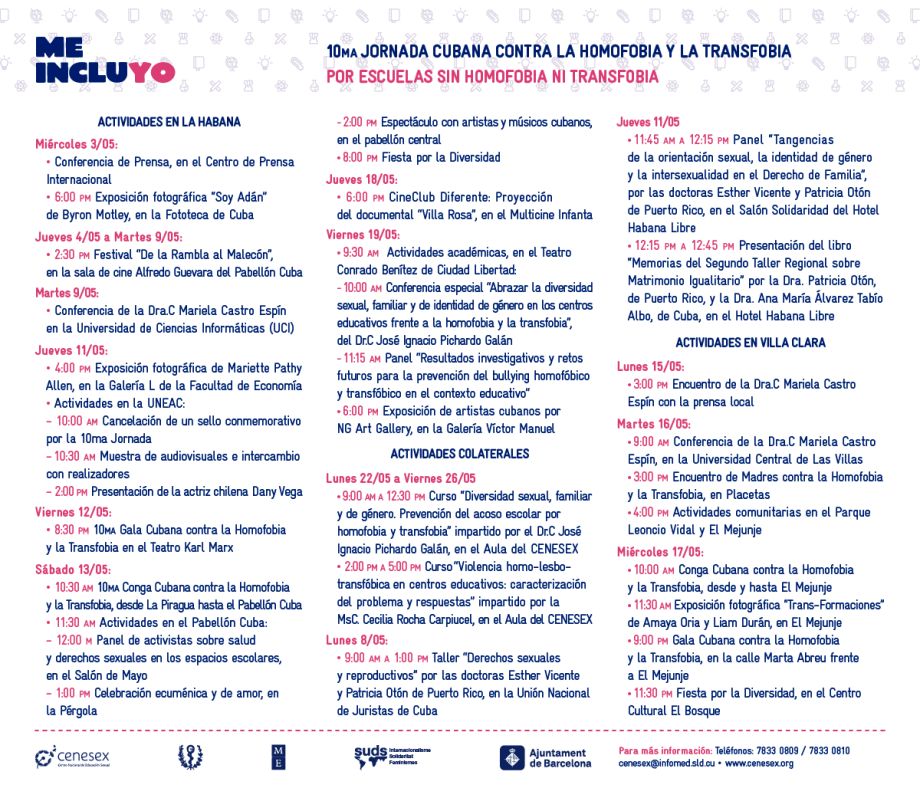
Beating the Drums for War
Beating the Drums for War
A CubaNews translation by Walter Lippmann.
For the 100 congressional senators, an unusual meeting will be held on WEDNESDAY 26, on the situation in North Korea, said some members of the Senate teams, according to the Reuters Agency.
Secretary of State Rex Tillerson, Secretary of Defense Jim Mattis, National Director of Intelligence, Can Coats, and General Joseph Dunford, Chief of Joint Chiefs of Staff, will speak at the meeting.
It should be borne in mind that TUESDAY (TODAY) is one more anniversary of the formation of the North Korean armed forces, which they regularly celebrate by launching some missile or performing a nuclear test.
I hope that sanity reigns over all things.
NESTOR.
Breaking News From GOP Insider Brief
A rare White House briefing for all 100 senators will be held on the North Korean situation on Wednesday, senior Senate aides said Monday, according to Reuters. The briefing will be by Secretary of State Rex Tillerson, Secretary of Defense Jim Mattis, Director of National Intelligence Dan Coats and General Joseph Dunford, chairman of the Joint Chiefs of Staff, the aides said.
100 years after October, Lenin more popular in Russia

100 years after October, Lenin more popular in Russia
A CubaNews translation by Walter Lippmann.
24 April 2017
Only 14% of Russian citizens support the destruction of Lenin’s statues, according to a survey by the Levada center published by the daily Kommersant.
Sociologists say that, for many Russians, he is a historical character with a lot of symbolism. Lenin’s role in history is viewed positively by 57% of the people who participated in the survey, which is 17% more than 11 years ago.
Every year the number of Russians who show a favorable attitude towards the revolutionary increases, they said in the Levada center.
In the polls of 2006, 2016 and 2017 there is a slight increase in Lenin’s popularity. More and more people are seeing it in a “completely positive” perspective. While 17% consider Lenin to have played a “rather negative” role in Russia’s history and 5% consider their actions to be very negative.
Andrei Petrov, executive secretary of the Russian Historical Society, told the Kommersant daily that the increase in the number of citizens who believe Lenin played a positive role in history is “a completely legitimate trend.”
“There is a decline in the intensity of the controversy over events that occurred a hundred years ago. For the people Lenin is the founder of the Soviet period, the first leader of the Soviet state, “he said.
This year about a quarter of respondents say that they do not believe that anyone will try to follow in the footsteps of Lenin, while a similar number says that “he came to the country on the path of progress.” For a fifth, “Lenin’s followers distorted their ideas” while another 20% believed Lenin led the country into a “brighter future.”
One-third of the Russians are in favor of keeping Lenin’s body in the mausoleum of Red Square. “Those who want to keep Lenin in the mausoleum are always a minority (in 2012 it was 25% and in 2006, 38%). The question is where to bury it, “says Alexei Grazhdankin, deputy director of the Levada center. Among the most popular places are the St. Petersburg Volkovski Cemetery and the Kremlin.
“The most common is that respondents say that the burial place of Lenin are the walls of the Kremlin and that corresponds to the role it represents for citizens. People think they played a big role and their burial emphasizes that symbolic role, “says Grazhdankin.
According to the survey only 4% fully agree with the statement “Lenin’s monuments should be demolished”, while 10% are “more or less in agreement”. The vast majority do not agree. According to Grazhdankin, in recent years the attitude of Russians toward Soviet symbols is improving. “Even in Moscow the majority support, in one way or another, that the monument of the Felix de Acero be restored (referring to Félix Dzerzhinski, revolutionary founder of the Cheka),” explains the sociologist.
North Korea’s Antidote to U.S. War
North Korea’s Antidote to U.S. War
By Manuel E. Yepe
Exclusive for daily POR ESTO! of Mérida, México.
http://manuelyepe.wordpress.com/
A CubaNews translation. Edited by Walter Lippmann.
The Democratic People’s Republic of Korea (DPRK), North Korea, or Communist Korea is one of the most systematic targets of the pejorative and slanderout propaganda carried out by capitalist-controlled media at a global scale.
But the DPRK has never succumbed to Washington’s intimidation. This has generated, around the world, admiration for the very fact of its survival; and solidarity for the courage with which it faces so much negative propaganda.
Pyongyang has never shown signs of wavering in the face of such threats and, on the contrary, it has even dared to develop a reduced arsenal of nuclear weapons for self-defense in the event that the United States tries to assert its dominance by launching another war like the one it carried out in the nineteen-fifties.
In the wake of the most recent US military provocations against North Korea and the usual firmness of its replies, the US journalist Mike Whitney has spublished a comprehensive article in the digital magazine Counterpunch recalling that:
“Washington has never made any effort to conceal its contempt for North Korea. In the 64 years since the war ended, the US has done everything in its power to punish, humiliate and inflict pain on the Communist country.”
“Washington has subjected the DPRK to starvation; it has prevented its government from accessing foreign capital and markets; it has strangled its economy with crippling economic sanctions; and has installed lethal missile systems and military bases on its doorstep.”
“Negotiations aren’t possible,” says Whitney, because Washington refuses to sit down with a country which it sees as its inferior. Instead, the US has strong-armed China to do its bidding by using their diplomats as interlocutors who are expected to convey Washington’s ultimatums as threateningly as possible. The hope, of course, is that Pyongyang will cave in to Uncle Sam’s bullying and do what they are told.”
“There’s no country in the world that needs nuclear weapons more than North Korea. Brainwashed Americans, who get their news from FOX or CNN, may differ on this point, but if a hostile nation deployed carrier strike-groups off the coast of California while conducting massive war games on the Mexican then they might see things differently. They might see the value of having a few nuclear weapons to deter that hostile nation from doing something really stupid.”
According to Whitney, “the only reason Kim Jong Un hasn’t joined Saddam and Gadhafi in the great hereafter, is because the DPRK has the capacity to reduce Seoul, Okinawa and Tokyo into smoldering debris-fields. Absent Kim’s WMDs, Pyongyang would have faced a preemptive attack long ago and Kim would have faced a fate similar to Gadhafi’s. “Nuclear weapons are the only known antidote to US adventurism,” says the journalist.
“In the early 1950s, during the Korean War, the US dropped more bombs on North Korea than it had dropped in the entire Pacific theater during World War II. This carpet bombing, which included 32,000 tons of napalm, often deliberately targeted civilian as well as military targets. Whole cities were destroyed, with many thousands of innocent civilians killed and many more left homeless and hungry.”
The United States killed over 2 million people in a country that posed no threat to US national security.
Like Vietnam, the Korean War was just another muscle-flexing exercise the US periodically engages in whenever it gets bored or needs some far-flung location to try out its new weapons systems. The US had nothing to gain in its aggression on the Korean peninsula.
“In the US, most people think the problem lies with North Korea, but it doesn’t,” explains Whitney.” The problem lies with the United States; it’s unwillingness to negotiate an end to the war, its unwillingness to provide basic security guarantees to the North, its unwillingness to even sit down with the people who –through Washington’s own stubborn ignorance– are now developing long-range ballistic missiles that will be capable of hitting American cities.
According to Whitney, “relations with the North can be normalized, economic ties can be strengthened, trust can be restored, and the nuclear threat can be defused. The situation with the North does not have to be a crisis, it can be fixed. It just takes a change in policy, a bit of give-and-take, and leaders that genuinely want peace more than war.
April 20, 2017
Ten Reasons Why Elián González Should Be United With His Father
Ten Reasons Why Elián González
Should Be United With His Father
By Nelson P Valdés
December 1999
First, the U.S.-Cuba Joint Communiqué on Cuba-U.S. Migration, New York City, September 9, 1994 established that both countries agreed to procedures and measures “to ensure that migration between the two countries is safe, legal, and orderly.” The agreement established that, “The United States and the Republic of Cuba recognize their common interest in preventing unsafe departures from Cuba which risk loss of human life. The United States underscored its recent decisions to discourage unsafe voyages. Pursuant to those decisions, migrants rescued at sea attempting to enter the United States will not be permitted to enter the United States, but instead will be taken to safe haven facilities outside the United States. Further, the United States has discontinued its practice of granting parole to all Cuban migrants who reach U.S. territory in irregular ways.”
In 1995 both countries signed the Companion Agreement on Migration by which the US government agreed to return to Cuba all those who were intercepted at sea, if they did not reach the US mainland. This is known as the “wet feet you go back, dry feet you stay” (in the US). The 1994 agreement also established that “The Republic of Cuba will take effective measures in every way it possibly can to prevent unsafe departures using mainly persuasive methods.”
The record indicates that the child was found at sea, he never reached the US mainland on his own. Moreover, fishermen found him and turned him over to the US Coast Guard. If this is the case, then the child has to be returned, as the 1994-1995 Migration Agreement establishes.
Second, the 1994 agreement has a section on “Alien smuggling” between Cuba and the United States. It reads, “The United States and the Republic of Cuba reaffirm their support for the recently adopted United Nations General Assembly resolution on alien smuggling. They pledged their cooperation to take prompt and effective action to prevent the transport of persons to the United States illegally.”
The Coast Guard, the US media and the State Department spokesman have stated that this was an illegal smuggling operation. In fact two of the survivors stated that they paid to get into the boat that would bring them to the United States.
If this is the case, then, the Migration Agreement has been violated as well. It should be noted that the 1994 agreement established that, “The United States and the Republic of Cuba are committed to directing Cuban migration into safe, legal and orderly channels consistent with strict implementation of the 1984 joint communiqué.”
Third, the United States has signed the Convention on the Civil Aspects of International Child Abduction, done at The Hague on October 25, 1980, which established the legal rights and procedures for the prompt return of children who have been wrongfully removed from one country to another, or retained in one country. Cuba has not signed the Convention but has the right to accede to it. Under The Hague convention children who have been wrongfully removed or retained abroad are to be returned promptly.
No one has denied that the child was removed by his mother without the consent of his father or of Cuba’s authorities. Nor that the father has requested that the child be returned to him.
Fourth, the U.S. Congress has ratified the International Convention on Child Abduction. In fact the Congress has declared that, “(1) The international abduction or wrongful retention of children is harmful to their well-being. (2) Persons should not be permitted to obtain custody of children by virtue of their wrongful removal or retention. (3) International abductions and retentions of children are increasing, and only concerted cooperation pursuant to an international agreement can effectively combat this problem.” (See: Section 1 of Pub. L. 100-300 or the International Child Abduction Remedies Act.)
Fifth, if the issue of custody is raised, then a custody jurisdiction dispute between the United States and Cuba (a country that has not ratified The Hague Convention) is to be handled in accordance with the Uniform Child Custody Jurisdiction Act or the Uniform Child Custody Jurisdiction Enforcement Act of the U.S. It should be noted that the federal legislation establishes under Section 105. INTERNATIONAL APPLICATION OF [ACT] that the court “shall treat a foreign country as if it were a State of the United States for the purpose of applying the law. That means that the rules that apply to another state in the United States also applies when it comes to the foreign country. That means that ” (c), a child-custody determination made in a foreign country under factual circumstances in substantial conformity with the jurisdictional standards of this [Act] must be recognized and enforced under [Article] 3.” U.S. federal law is consonant with the International Convention, which, under Article 3 recognizes that “the law of the State in which the child was habitually resident immediately before the removal or retention” is the one that applies in the case.
It has been argued that the mother’s intent of taking the child to the United States should be respected. However, the law says otherwise. The moment when the child was removed, it has been argued, constitutes a “loss of residence” even if a new habitual residence has not been established. But U.S. Court of Appeal for the 6th Circuit concluded otherwise. (Friedrich v. Friedrich, No 92-3117, 983 F.2d 1396, decided 22 January 1993)
Sixth, the 1999 Florida Statutes also support the father’s claim. The following sections are pertinent to this case:
- a) the father’s Cuban custody is to be recognized according to The Uniform Child Custody Jurisdiction Act, Section 61.1348 International application. (It reads, “The general policies of this act extend to the international area. The provisions of this act relating to the recognition and enforcement of custody decrees of other states apply to custody decrees, and decrees involving legal institutions similar in nature to custody institutions, rendered by appropriate authorities of other nations if reasonable notice and opportunity to be heard were given to all affected persons.”
- b) the child is to have frequent and continuing contact with his father, which obviously cannot happen if the child is in the US and the father in Cuba. (See: “Section 61.13(b) 1. The court shall determine all matters relating to custody of each minor child of the parties in accordance with the best interests of the child and in accordance with the Uniform Child Custody Jurisdiction Act. It is the public policy of this state to assure that each minor child has frequent and continuing contact with both parents after the parents separate or the marriage of the parties is dissolved and to encourage parents to share the rights and responsibilities, and joys, of child-rearing. After considering all relevant facts, the father of the child shall be given the same consideration as the mother in determining the primary residence of a child irrespective of the age or sex of the child.”
- c) responsibility for a minor child is the province of both parents; obviously in the absence of the mother, then the father is responsible “unless the court finds that shared parental responsibility would be detrimental to the child.” There is no evidence of any felony or of domestic violence on the part of the father. Moreover, the International Convention as well as the U.S. law does not apply here because the issue should not be who has custody, but rather whether the child should be returned to his parent.
- d) Florida law recognizes that decisions concerning custody should take place, “ ordinarily in the state with which the child and his or her family have the closest connection and where significant evidence concerning his or her care, protection, training, and personal relationships is most readily available, and that courts of this state decline the exercise of jurisdiction when the child and the family have a closer connection with another state.” ( Stat. § 61.1304 (1999))
- e) A court in the state of Florida should not be considering the case at all, first because Florida is not the “home state” of the child nor has the child resided in the state for at least 6 months. (See: Stat. § 61.1308 (1999), 61.1308 Jurisdiction. (1) A court of this state which is competent to decide child custody matters has jurisdiction to make a child custody determination by initial or modification decree if: (a) This state: 1. Is the home state of the child at the time of commencement of the proceeding, or 2. Had been the child’s home state within 6 months before commencement of the proceeding and the child is absent from this state because of his or her removal or retention by a person claiming custody or for other reasons, and a parent or person acting as parent continues to live in this state;)
A mere physical presence of the child in the state is not sufficient to confer jurisdiction on a court of the state to make a child custody determination. (FLORIDA STATUTES 1999, HISTORY: s. 4, ch. 77-433; s. 326, ch. 95-147.)
Seventh, the very fact that the child has been held in Florida without the consent of the father, the only surviving parent may constitute kidnapping as defined by the Florida Statutes, TITLE XLVI, Chapter 787. Kidnapping refers to the confining of a child under 13 “against her or his will” meaning, confinement “without the consent of her of his parent or legal guardian.” (See: Section 787.01b). The Florida courts have not yet determined who the legal guardian is; but the Cuban courts state it is his father..
Eighth, it remains to be determined whether in fact there has been a concerted effort to interfere with the custody of the child’s father. ( See Section 787.03, (1) Whoever, without lawful authority, knowingly or recklessly takes or entices, or aids, abets, hires, or otherwise procures another to take or entice, any child 17 years of age or under or any incompetent person from the custody of the child or incompetent person’s parent, his or her guardian, a public agency having the lawful charge of the child or incompetent person, or any other lawful custodian commits the offense of interference with custody and shall be guilty of a felony of the third degree, punishable as provided in s. 775.082, s. 775.083, or s. 775.084; (2) In the absence of a court order determining rights to custody or visitation with any child 17 years of age or under or with any incompetent person, any parent of the child or incompetent person, whether natural or adoptive, stepparent, legal guardian, or relative of such child or incompetent person who has custody thereof and who takes, detains, conceals, or entices away that child or incompetent person within or without the state, with malicious intent to deprive another person of his or her right to custody of the child or incompetent person, shall be guilty of a felony of the third degree, punishable as provided in s. 775.082, s. 775.083, or s.775.084.)
Ninth, the United Nations Convention on the Rights of the Child ratified by Cuba and the United States in its Article 11 declares that “States Parties shall take measures to combat the illicit transfer and non-return of children abroad” and “to this end, States Parties shall promote the conclusion of bilateral or multilateral agreements or accession to existing agreements.” Article 35 calls for “all appropriate national, bilateral and multilateral measures to prevent the abduction of, the sale or traffic in children for any purpose or in any form.”
Tenth, human decency, family love and common sense dictates that this child and his father should be together.
At the time of this writing Prof. Nelson P Valdés was a full professor of Sociology at the University of New Mexico, director of the Program of Academic Research on Cuba of the Latin American and Iberian Institute at UNM, and president of the Cuba Research and Analysis Group – a nonprofit organization in Albuquerque, New Mexico.
================================================================
Note: The Elian affaire was initiated prior to Fidel Castro participating at the WTO conference in Seattle. At the time the CANF had a major campaign to get Fidel Castro arrested if he landed on US soil. See: https://socialistaction.org/1999/11/01/fidel-castro-expected-to-attend-cuba-solidarity-conference-and-wto-meeting-in-seattle/
The Vietnam War and the People of the U.S.
The Vietnam War and the People of the United States
By Manuel E. Yepe
Exclusive for daily POR ESTO! of Mérida, México.
http://manuelyepe.wordpress.com/
A CubaNews translation.
Edited by Walter Lippmann.
“Two of the world’s greatest revolutionaries –Jose Marti and Ho Chi Minh– lived for some time in the United States.
Both had deep knowledge of US history and culture. Both saw the dark side of that nation, but also acknowledged great revolutionary potential in the democratic ideals of the United States. The Vietnamese Ho Chi Minh wrote about the Ku Klux Klan and lynching, while, in the 19th Century, Cuban Jose Martí warned against the evidence of the coming advent of imperialism in North America.”
The quotation is from “Vietnam and Other American Fantasies,” a book by Bruce H. Franklin (b.1934), the multiple award-winning scholar and writer on historical cultural topics.
Franklin’s book attempts to demolish the fantasies, myths, and lies that most people in the United States believe about the relatively recent Vietnam War. It uncovers the truth about what was really an imperialist war against the people of Vietnam, Laos and Cambodia.
That war was rejected by the heroic struggle of tens of millions of people in the US. The dominant narrative today in the United States claim there was a democratic nation called South Vietnam, and another evil one called North Vietnam that was part of a communist imperial dictatorship. North Vietnam wished to invade South Vietnam.
The United States, being the leader of the free world and the defender of democracy on Earth, had to go to South Vietnam in 1965 to defend it and got bogged down in a quagmire. “We could not win the war because we fought with one hand tied behind our back, because of some university students mobilized by veteran left-leaning professors and the actress Jane Fonda.”
In his book, Franklin explains that Vietnam was a single country, not two countries. The US war against Vietnam began in 1945, not in 1965. The anti-war movement was initiated by US soldiers and sailors who were its vanguard, and in the endydct k made it impossible for Washington to continue the war in 1945.
Between 1945 and 1975 the Vietnamese revolution led the global struggle against colonialism that brought independence to half the world’s population. During those three decades, the US struggled to preserve colonialism and became the leader of neo-colonialism, the ultimate form of imperialism in the world.
Franklin recalls the true story of the day when Japan surrendered: August 14, 1945, recalling his experiences that day, when he was eleven years old. He was riding in a van full of children in joyful celebration in the streets of the Brooklyn neighborhood where he then lived. “We believed in a future of peace and prosperity, quite different from that of a nation always at war, as we live in now.”
That day in August was the beginning of the revolution in Vietnam, when the Vietnamese people rose and, in less than three weeks, defeated the Japanese and the French and established the Democratic Republic of Vietnam.
On September 2, Ho Chi Minh read out the declaration of independence to half a million Vietnamese in Hanoi, the former capital of a new nation that had been fighting for independence for over 2,000 years.
Suddenly, two fighter planes appeared above the crowd. When the Vietnamese recognized US insignia on the planes, they shouted for joy. They believed that the Americans were their friends and allies, and that they were the champions of freedom and independence from colonialism.
Washington, however, conspired with Paris to launch an invasion against the Democratic Republic of Vietnam whose goal was to restore French colonial rule. The United States would provide arms and financing. This, Franklin points out, was the true beginning of the war against Vietnam and marks the beginning of the US people’s movement against that war.
The British troops who had been sent to Saigon to disarm the remaining Japanese forces, instead gave weapons to the Japanese who had been recently disarmed by the Vietnamese. Soon the Japanese joined the British together with the remnants of the French colonial forces to wage war against the newly-declared independent nation of Vietnam.
When Washington later decided to replace France in the war against Vietnam, fierce opposition from US citizens prevented it, and for that reason, direct US military involvement had to be initially disguised.
Bruce H. Franklin recalls that, although it was the struggle of the Vietnamese which defeated the United States, the anti-war movement, especially in the armed forces, ultimately forced Washington to sign a peace treaty that included, word by word, each demand of the victorious Vietnamese liberation forces.
Mississippi Governor on Working Visit to Cuba

Mississippi Governor on Working Visit to Cuba
A CubaNews translation by Walter Lippmann.
Mississippi Governor Phil Bryant began an official visit to Cuba Wednesday, where he met with Foreign Trade and Foreign Investment Minister Rodrigo Malmierca to stimulate bilateral ties.
Bryant is the second governor of a US state to travel to Cuba since New York magnate Donald Trump took office, following the visit of Colorado Gov. John Hickenlooper, a Democrat, last February.
In the meeting with Malmierca, the governor of Mississippi was accompanied by a delegation of business executives and officials from that state, who also held meetings with officials from the ministries of Tourism, Agriculture and Food Industry.
The North American delegation includes representatives from sectors such as agriculture, tourism, renewable energy, food production and marketing, and port activity.
Minister Malmierca said that since the beginning of the process of normalization of relations between Cuba and the United States in December 2014, “much has been progressed since”, but remains “the most important”: elimination of trade, economic and financial blockade.”
“The blockade’s measure is the main obstacle to us having normal ties. It not only creates serious difficulties for the Cuban people, but also damages economic operations between the two countries and with third parties,” said the Cuban minister on the policy Washington has applied to the island since 1962
According to him, Bryant and his entourage also spoke with authorities of the Cuban ministries of Tourism, Agriculture and Food Industry
Governor Bryant and his delegation are planning a tour of the Mariel Special Development Zone (ZEDM), a business and commercial enclave about 40 kilometers from Havana, which is the star project of the Cuban government to attract foreign investment .
The governor is scheduled to meet during his visit with authorities of the Ministry of Transportation and with the director general for the United States of the Cuban Foreign Ministry, Josefina Vidal.
Last February, Havana, Republican Senator William Thad Cochran, who presided over the signing of agreements between maritime-port authorities in Cuba and the ports of Pascagoula and Gulfport in that southern state, was the result of a business forum to explore Joint business opportunities.
(Infromation of Prensa Latina and EFE)
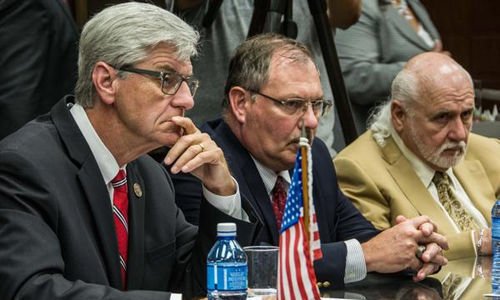
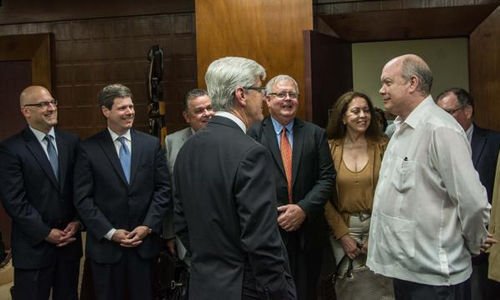
Child Sexual Abuse: Without Faces or Ages
Child Sexual Abuse:
Without Faces or Ages
A CubaNews translation.
Edited by Walter Lippmann.
She was the girl in the house, nice and affectionate. He was the “uncle”, Dad and Mom’s best friends since they were little children, like her. She always ran to greet him. He visited the house on every birthday, on weekends, in the afternoons … Her parents would leave her in the care of the “uncle” so they could run errands. He brought her dolls, candy, cookies. She never understood why he kissed her in the mouth, took off her robe and touched her everywhere when they were alone. He told her it was a secret, as in the tales of princesses. She did not like it; but it was a princess’s secret … He left her half-naked and crying one afternoon when Mom and Dad had not yet returned … She’s barely four years old.
Contrary to the widespread belief of an “unknown stranger,” “distant from our home or affective environment,” events such as the one narrated above are very much our own, close, historical … Social taboos or stigmas –even institutional ones– manage to silence them, but never avoid them, much less eradicate them.
“I worked with cases that came to the Court in 2015 and the first months of 2016,” explains Lisandra León Borrero, whose Master’s Degree thesis in Criminology discussed the “Victim Factors that Promoted Sexual Abuse of Children Under 16 in The Municipality of Cienfuegos in 2015-16: Actions for prevention.” However, the author mentions the existence of other cases still being processed and says there are cases that are never reported.
Researchers say that in our country the most common crimes related to child sexual abuse are lascivious abuses, and the most vulnerable are children between three and ten years of age.
According to the 2013 Cuban Report on “Legal-penal actions against human trafficking and other forms of sexual abuse”, protection was granted to 2,321 girls and boys who had been victims of these acts (1036 of lascivious abuse, 553 of corruption, 365 of rape, 191 of sexual outrage, 57 of pederasty and 29 of rape under 16 years of age). From then to date, the figure has been rising.
“I do not think it has increased,” explains Dr. Diana María Stuart Duarte, child psychiatrist at the Centro de Evaluación, Análisis y Orientación del Menor (CEAOM) [Center for Evaluation, Analysis and Guidance of Minors] in the province. From the very beginning of the history of humankind, abuse has been present. But people have gained confidence, knowledge, and are less afraid. Thus the number of accusations has increased. In fact, many families had their children being victims of sexual abuse and did not disclose it. We are already more open in that regard.”
Other studies reveal that, even with such progress, the reported cases are usually only 10 to 20 percent of the real number .
PREVENTING…
The victimizers, like the victims, have no face, no age, no sex, but “they are almost always close to the family and study their victims, identifying problems of any kind: children who lack affection. And many times the child is mentioning the abuse to the elders and they do not believe it; they take him or her to be a liar. Imagine being in a situation like that,” says Lic. Sara Rey Hernández, a psychologist at CEAOM.
As part of her research, Lisandra León Borrero identified some risk factors that increase the vulnerability of children to this type of abuse. The absence of risk perception on the part of the family is at the top of the list and reveals certain shortcomings of present-day Cuban society.
“Most of the cases under study were dysfunctional families; they did not pay attention to their children; they did not know who they related to; they were not prepared to provide them with adequate sex education; and they were permissive.”
“Another element was the economic factor. In juvenile corruption, for example, when we analyze how the crime is committed –the age, the crime itself—material factors are almost always present. Predators take advantage of those teenagers who wish to have cell phones or tablets, and whose parents cannot give them those goods.”
Master Lisandra Leon Borrero also discusses the social factor with the presence of alcoholism in our communities, and the lack of adequate recreation spaces for the children. “The mother lives on a fifth floor and lets the child play in the street, in a dark place, without supervision,” she added.
Whether in the short or medium term, the aftermath is usually manifested in the child victim. Among the most serious consequences, Dr. Stuart Duarte includes: affective disorders, psycho-somatic problems (physical symptoms such as fatigue, loss of appetite or gastrointestinal, perception, function or behavioral disorders) or personality disorders, deriving even from substance abuse.
The law, for its part, falls more heavily on those responsible depending on the age, the circumstances of the event, or the significance of the damage. Punishments range from 12 months for lascivious abuse, to 30 years or death for rape, violent pedophilia or corruption of minors when the victim is under twelve years of age.
“In 1991 Cuba ratified the Convention on the Rights of the Child. However, our Penal Code shows a certain lack of protection when it comes to considering aggravating factors,” Leon Borrero explains. In civil law here, a person is a minor until he or she is 18; but for punishment in criminal law we speak of a minor until he or she is 16, and in the end, aggravation is only considered when the victim is 14 or younger”.
WHEN THERE IS CONFIRMATION
Although each child may react in different ways to this type of aggression, there are symptoms that would help relatives or friends to detect them.
“Isolation is one of the most common,” says psychiatrist Diana Maria Stuart. Also school rejection, hostility, rebellion, fluctuations in appetite, difficulties in personal relationships … Depression in children and adolescents is not as in us adults: in children, it responds to a manifestation of behavior, rather than to emotional causes…
Behavioral alterations take precedence over emotional ones. The school plays an important role: when a child is being abused his or her academic performance almost always decreases. The child reacts differently: some are not aggressive and at a certain moment they become so; they reject physical contact …”
“It is paramount to maintain close observation of such changes,” stresses psychologist-pedagogue of CEAOM, Lic. Arianna González Fernández. “Sometimes we get cases in which the parents cannot tell us if there is an emotional alteration or not: the child is in school until 5:00 pm, comes home, takes a bath, does homework, eats and goes to bed. In such circumstances, it is the teacher who helps us with a more complete characterization.”
It is difficult to react serenely to the chance of possible abuse of some of the smallest of the house. However, it is essential to take into account some procedural steps for the safety and welfare of the child.
“When the family learns of the abuse, it should address the PNR unit [Policia Nacional Revolucionaria/ National Police] and file a complaint without the presence of the child. The child should not be taken to the unit of the PNR, emphasizes psychologist Sara Rey Hernandez. The child has already told the story to a cousin, an aunt, then to the mother, and then goes to the police station and repeats the story to whoever is there. They may not be the person prepared to explore the child. To work with them is our group of specialists. We must not re-victimize the victim.”
“Nor should parents insist on getting more details. That is our job,” comments González Fernández. “We keep repeating this because that insistence only creates more problems. By the time we get the information, it will already be tainted and the child will give us a narration of what he heard, guessed, imagined… altering the concrete fact.
The specialists interviewed agreed on the fact that, in general, delays in the detection and reporting of abuse persist.
“Speaking in terms of crime, we should not cause alarm either,” suggests Lisandra León Borrero. We should be careful with the subject, because perhaps the child’s symptoms respond to something else and misunderstandings can generate family conflicts.”
“We know that everyday life is difficult, but we must devote time to our children,” emphasizes Stuart Duarte. “Talk to them, play with them. Draw with them. The idea is not to be permissive, but to devote time to them. And have control: boys and girls should have schedules according to their age; parents should know who they play with, where they play … All this is important in the family’s actions to prevent their children from being victims of sexual abuse.”
Stories like that of the girl in our opening paragraph are very close to home, they are our own, historical … And silence does not manage to silence the pain, much less avoid it.
Crimes involving sexual abuse
Violent pederasty: sexual intercourse with men
using violence or intimidation.
Sexual outrage: harassment with sexual demands,
exhibitionism or obscene acts; producing or circulating pornographic materials.
Lewd abuse: to lasciviously abuse a person
of either sex, without the aim of carnal access,
using force or intimidation.
Rape: to have sex with a single woman
older than 12 years and under 16,
using abuse of authority or deception.
Corruption of minors: using minors under 16
in the practice of prostitution or in the practice
of acts of corruption, pornography, or other
dishonest behavior.
Cuban-American gets life sentence for terrorism in USA

Cuban-American gets life sentence for terrorism in USA
April 18, 2017

Harlem Suárez. Photo taken from Facebook.
Translation by Walter Lippmann.
Harlem Suarez, Cuban-born citizen, was sentenced to life in prison after being found guilty of attempting to blow up a bomb on a Florida beach and providing material support to the Islamic State group, the US Public Prosecutor’s Office reported today.
Judge José Martínez Suárez stated today that Suárez, 25, must spend the rest of his life in prison, as requested by the prosecution, who had considered Monday that this would be a “totally fair and reasonable” punishment for his crimes.
Suarez was sentenced to life in prison for attempting to use a weapon of mass destruction, and to an additional 20 years in prison for trying to provide support to a terrorist group, the prosecutor said.
The prosecution presented the recordings of the defendant’s conversations with the FBI undercover officers, in which they spoke of the explosive device.
Suarez, found guilty last January in a Florida Keys court, said during the trial that he had no real intention of blowing up a bomb, that he felt scared and intimidated by the police and that his interest was only to know, out of curiosity, the way in which the EI operates.
From the outset, defense lawyers tried to evade terrorism charges by arguing that their client has mental problems.
Suarez was arrested in mid-2015 by the FBI after being monitored by this entity since April of that year, when they detected that he had made comments of support to the Islamic State on his Facebook account.
According to the complaint, the Cuban met with an undercover FBI informant on multiple occasions with the intention of carrying out an attack in the country on behalf of the IS after publishing a series of violent messages in favor of the terrorist group on Facebook, under the name “Almlak Benítez”
(With information from EFE)
Miguel Barnet on US-Cuba Normalization
Miguel Barnet at Cuba normalization conference
New York City, March 2017
Transcribed by Carla Riehle. Edited by Walter Lippmann.
Gail Walker:
I’d like to now ask our brother Miguel Barnet to please come forward and to offer a few words. Distinguished member, leader of UNEAC, the union of writers and artists in Cuba.
Miguel Barnet:
Yes, dear friends and colleagues.
We are very, very happy, first of all to to have you here, and then to hear this message from Gerardo. You know of the five heroes, Gerardo is something very special. You know that. He’s a very talented young man and now very happy with three children, and that means a lot.
It comes to my mind the day that Fidel, in one of his speeches, said, “they will come back” and they are in Cuba now, so that’s something that we have to really recognize, and this is, in a way, something that belongs to you also, because you worked very hard for that occasion.
We Cubans are deeply proud of the solidarity expressed by people around the world to Cuba and particularly to the Cuban revolutionary process. Solidarity is one of the basic principles of the revolution led by Fidel and Raúl. The word solidarity carries the most sensitive feeling of Cubans who live in the island.
We were raised under this concept and it has been a daily practice for all of us. How can we analyze or discuss issues of revolutionary life if we do not take into account what we have done all over the world, not to mention medical aid to poor people, education or political support to countries that have suffered criminal and illegal wars.
Now, I would like to say Latin America has been a priority to us, but also, we have expressed our solidarity in international multi-lateral organizations like the African Union, the UN, UNESCO, the July 26 Coalition, Venceremos Brigade, Pastors for Peace and the recently-created CELAC. Fidel has been the icon of that struggle and he never gave up his principles, regardless of foreign pressure and blackmail. We all learn from him that solidarity is a keyword and a banner of socialism and humanism.
This is the reason why we admire all those people like you who have strengthened ties of friendship and support to our cause. I want to mention here just one name of a person who passed away last year and is definitely a symbol of that solidarity and also a symbol of friendship.
Saul Landau. He never had to say to [inaudible] hold hands together with all Cubans. He is, to me, one of the best examples of what a concrete action of solidarity represents.
I could also mention others: workers, students, intellectuals and ordinary people who massively backed us after the kidnapping of the boy Elián González.
I want to mention also others who always wrote serious articles analyzing the Cuban Revolution, such as Noam Chomsky, James Petras, Arnold August, just to say outstanding examples.
The struggle to free the Five Heroes was likewise a heroic feat where many took risks of persecution and harassment. What fair words can I use for such cooperation and embracing of Cuba and its population. You are anonymous heroes of this huge battle to achieve the goal of a new world that has to wipe up the poison seeds of capitalism and imperialism.
Not all of you, and I know that, are members of any party, maybe social organizations or labor unions, you’re mainly or basically honest people, well-meaning and decent, who have faced risky situations and then in dangerous fields You represent the good Americans, the land of Abraham Lincoln, Martin Luther King, Malcolm X, Lucius Walker, the land of truth and justice. We are conscious that you wish a participative democracy and not one that justifies crimes, corruption and lies.
How can we normalize relations if the embargo is not lifted right away, and the whole world demonstrates this with its vote in the United Nations? That is our biggest aim and I’m sure it is also yours. How can I be happy in this wonderful place, in this wonderful country, in this city, where I have lived and learned so many good things from your cultural heritage, if the embargo is not lifted?
If we can not make sometimes, at least in my case, make calls from my cell phone, I still don’t have roaming [service] to call my friends and especially my grandson in Cuba. I have to ask my colleague who comes with me, the deputy of the writers and artists union. The university’s telephone has roaming, not mine. I don’t know why. It’s a mystery. I think probably I have to buy a new one soon, anyway.
Okay. Why cannot we use dollars in our financial negotiations with Cuban and American banks? Why cannot I receive royalties of my books published in the United States? One of them has eight editions in the United States and I haven’t received a cent. Not one thing. Okay. That’s not important.
Because of the stupid and criminal embargo that we of course mentioned, with the very pointed definition of blockade, which is expressive of our feelings towards this country and ourselves. We’re neighbors, as President Obama declared and John Kerry repeated, upon the raising of the American flag in the new American Embassy in Havana. A neighbor is part of our family and I think we also belong to that family, the family that José Martí in New York called “Our America,” “nuestra America.”
We are also Americans with rumba that, by the way, was recently declared an international, tangible heritage and that’s a great feat also, thanks.
Latin jazz, cigars that still cannot be found in any airport of this country. Why? Isn’t that absurd? Absurdity, as the French philosopher and leader of the French Revolution, Talleyrand, said, is worse than a crime.
Let us shake hands and hugs for heaven’s sake. It’s enough. We need a new and common energy. We are people of peace and friendship.
Dear friends, on behalf of the Cuban writers and artists, and also of the Cuban people that I represent, thank you very, very much for your sincere solidarity that, believe me, has been more important to us than any prayer.
Cuba never will betray the ideas that our leader Fidel taught to us. Those ideas are ready to face all challenges and risks that we come across. This is a battle that we will win to honor his memory and follow his principles. Our national poet and hero, José Martí, who lived in this country for 15 years in the nineteenth century, wrote, “trenches of ideas are stronger than trenches of stone.”
Let us make that statement true always.
Thank you.
Venceremos.
Subscribe to Blog via Email
| M | T | W | T | F | S | S |
|---|---|---|---|---|---|---|
| 1 | ||||||
| 2 | 3 | 4 | 5 | 6 | 7 | 8 |
| 9 | 10 | 11 | 12 | 13 | 14 | 15 |
| 16 | 17 | 18 | 19 | 20 | 21 | 22 |
| 23 | 24 | 25 | 26 | 27 | 28 | |

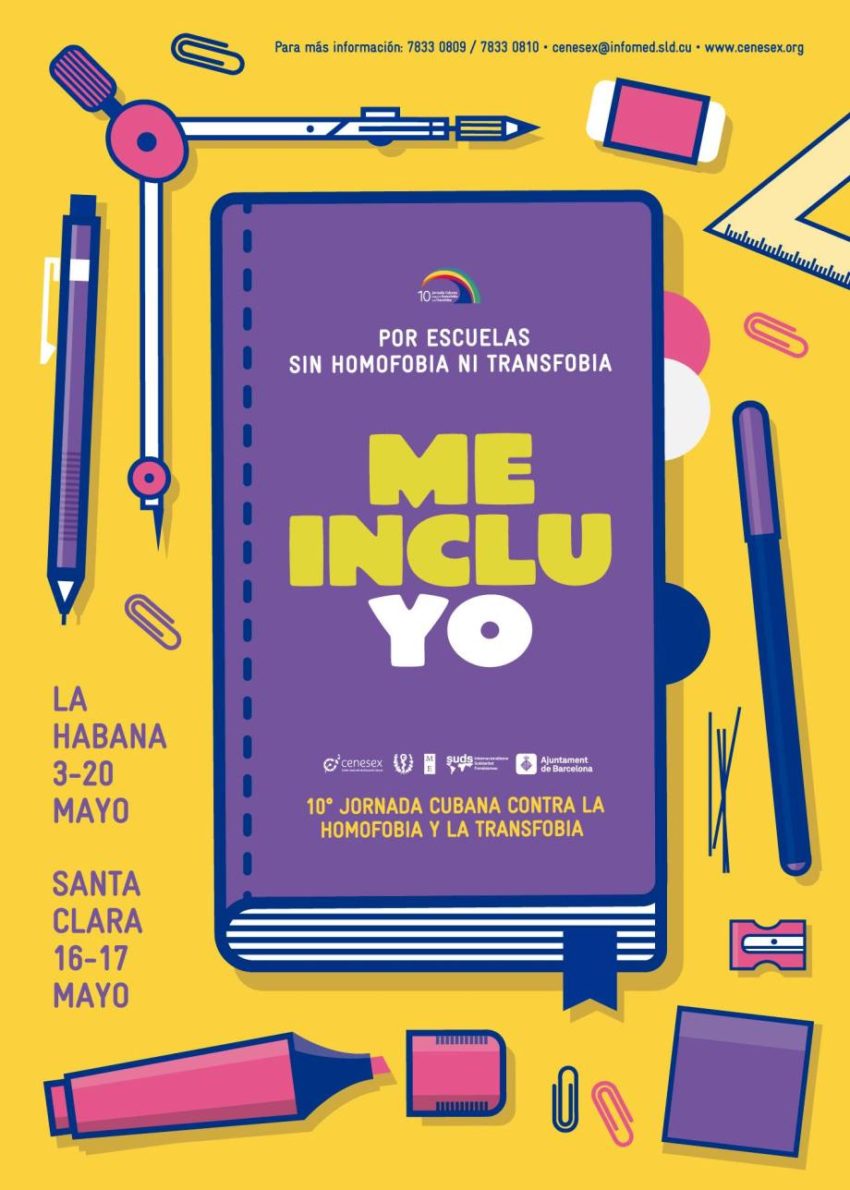

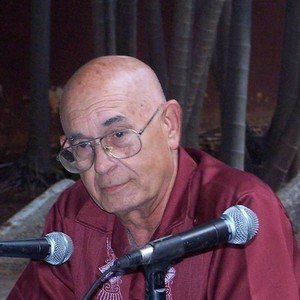
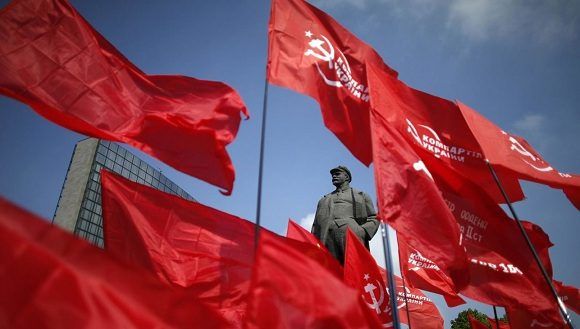


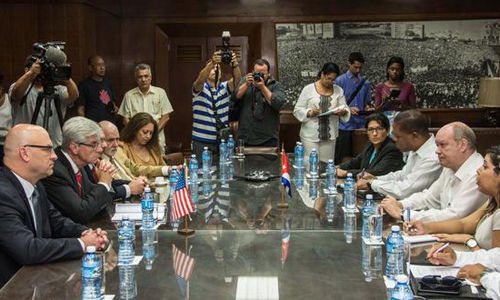


You must be logged in to post a comment.